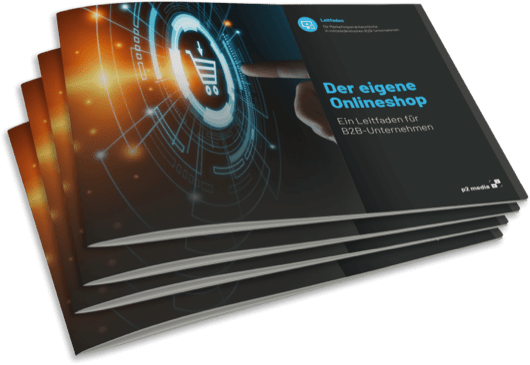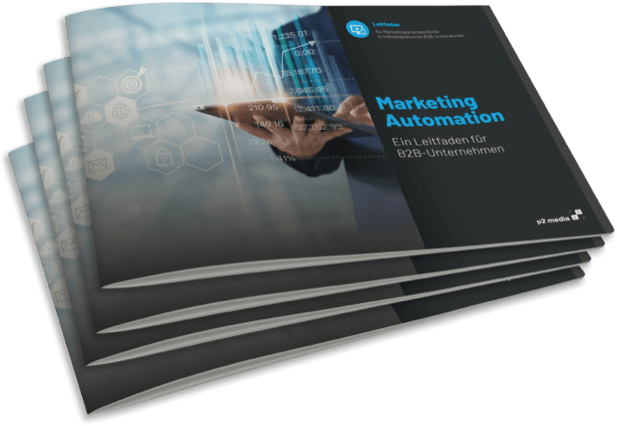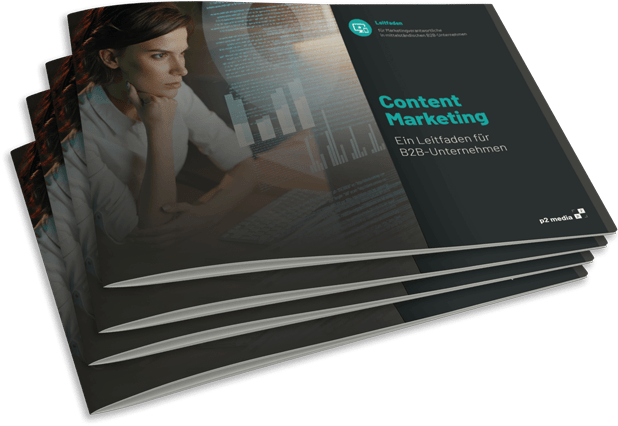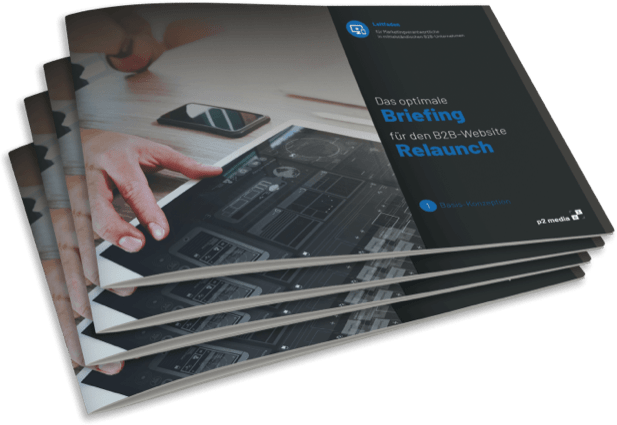Artificial intelligence in B2B is no longer science fiction and no longer a passing hype!
By using the corresponding possibilities and software, a significant increase in efficiency and considerable competitive advantages can be achieved.
The fact that artificial intelligence provides advantages which have a high business relevance is well known by now. A survey conducted by adesso in cooperation with the market research institute "Heute und Morgen GmbH" to clarify the importance of AI for business and customers highlighted that 77 percent of decision-makers consider artificial intelligence to be a very important topic.
In addition, AI was classified as an indispensable influencing factor for product innovations and as absolutely decisive for competition. Respondents and survey evaluators agreed that those who invest in artificial intelligence over the next five years are significantly ahead of their peers in terms of competition. However, a whopping 71 percent of participants also had concerns about their own company's capabilities in this technology area.
Given the enormous weight of these numbers, here's an overview of the current AI situation in B2B marketing and B2B sales as a basis for your AI push.
How does artificial intelligence work?
Artificial intelligence imitates the cognitive and decision-making abilities of humans - or at least attempts to do so to a large extent. Today's AI systems are actually still far from being able to really act accordingly. However, they are already very well suited for efficiently analyzing and processing large amounts of data. The basis for this is still algorithms written by humans.
However, the performance of AI is constantly being developed further. Neuroscientists and computer scientists are taking their cue from the networking of neurons in the human brain and are creating increasingly complex artificial neural networks (ANNs).
These are already able to independently reconnect themselves with the help of information that they process, or even re-evaluate existing connections. This, in turn, means that AI algorithms themselves are increasingly able to "learn" and ultimately develop independently.
What can artificial intelligence do today?
Artificial intelligence is primarily used in B2B marketing and B2B sales when it comes to handing over recurring tasks to specific software. The automatic processing of such tasks is usually made possible by feeding context-related data into corresponding tools, which then process it with the help of algorithms.
So far, so good - but how does this show up in practice, or what capabilities does AI offer there that companies can take advantage of? To answer this question, let's take a closer look at the terms "machine learning", "deep learning" and "predictive analytics".
Deep learning is an extension of machine learning. Here, algorithms are used to emulate the neural network of the human brain. Corresponding systems can really get to know certain subject areas and solve various tasks within them. Such neuronal AI networks are widely branched, therefore "deep", and are based on huge amounts of data.
Predictive analytics make it possible to make very efficient predictions for the future based on historical data. Here, too, very large amounts of data are used for maximum benefit and combined with many other factors. For marketing and sales purposes in B2B, this area already holds numerous applications with a lot of potential.
What is artificial intelligence allowed to do?
Today, even the most powerful KNNs are far from developing intellectual capabilities or making human and ethically oriented decisions. On the way there, there will undoubtedly still be very charged discourses about what AI is allowed to do and what it is not.
Already today, almost all areas of application of AI repeatedly provoke controversy: Are decisions made in recruiting by machine learning sufficiently fair? Are credit inquiries made by financial service providers who rely on artificial intelligence for their initial advice comprehensive enough based on data?
The problems behind these and other ethical questions surrounding AI must of course be ruled out as far as possible. For this reason, a committee of experts has been set up at EU level to draw up ethical guidelines in connection with artificial intelligence.
However, these guidelines will not be far-reaching enough in the long term, especially in view of the fact that AI networks will become increasingly complex and powerful in the future. There are no recommendations from the EU Commission for minimum requirements or security obligations among AI operators. Therefore, it is not at all clear - at least legally - exactly what AI is allowed to do.
How can artificial intelligence support B2B sales?
Voice assistants on mobile devices or even in the home, such as Siri and Alexa, are no longer unusual. The same applies to posts on social networks or the acceptance of product recommendations on search services. In these and numerous other everyday situations, AI is actually already at work. And it is precisely such processes that B2B companies can also use for their own purposes. While intelligent technologies in business have so far been used primarily to automate production and logistics processes, other approaches to AI application are currently coming into focus and will do so to a much greater extent in the future. B2B sales will benefit enormously.
As a general rule, the sales department of a company is a very effective interpersonal decision-making apparatus. B2B salespeople who know their contacts and their concerns very well virtually always have the best closing ratio. With the help of artificial intelligence and predictive analytics, the sales team can massively expand their knowledge base in this regard. Data from previous conversations, customer referral acceptance, social media activity, web analytics, and other information from numerous other sources can provide a very detailed and largely automated buyer picture. Taking this into account on a small scale, sales can achieve a significant conversion uplift. AI even gives out specific forecasts, resulting in significant time savings.
If Robotic Selling, i.e. software-based or automated preparation in sales, is also used, efficiency increases even further. Robotic Selling is already capable of influencing even complex decision-making processes in an expedient manner.
For more advantages of AI in the sales area, we recommend our guide.
What are the uses of AI in marketing?
Information is an important currency in digital marketing today. However, its real value lies not in the data itself, but in the insights that can be achieved with it. It is precisely this added value from which AI applications derive their effectiveness.
Such systems systematically evaluate information for marketing and reveal patterns. They thus provide extremely useful target group insights and make correlations between marketing assumptions, typical customer prerequisites and their buying behavior transparent. AI systems continue to derive precise predictions and recommendations for action from the insights gained. Such predictive analytics form the basis for exceptionally efficient - because highly precise - marketing measures.
Artificial intelligence also enables immediate optimization of marketing activities through real-time performance analyses. Typical manual processes can be largely replaced here.
There are therefore already many possible applications for AI in marketing today, through which considerable efficiency advantages can be achieved at various levels. In practice, the following approaches are particularly promising.
Predictive analytics are just as useful in marketing as they are in B2B sales. Marketing also benefits from the collection and evaluation of large amounts of customer data, through which the target group(s) can be recorded very precisely in their prerequisites. On the basis of this data, the following marketing measures can be adapted to these conditions in a highly efficient manner.
In the course of lead evaluation, existing customers can be analyzed by AI and individual scoring models can be developed. With the help of the latter, predictions can be made about which leads have particularly high closing potential based on their prerequisites.
The results of predictive lead scoring can contribute significantly to optimizing the generation of leads and also help to develop new target groups.
Dynamic pricing is an AI-based pricing strategy that dynamically sets prices based on current market demand. To enable such processes, dynamic pricing uses an algorithm that automatically adjusts prices in real time based on supply and demand, customer behavior, current price trends, and other external factors. Initially, dynamic pricing was reserved for e-commerce giants such as Amazon and other global corporations. In the meantime, however, it can also be implemented by smaller companies.
AI chatbots have already arrived at many B2C e-commerce marketers, for example in messenger marketing or as digital shopping assistants. But they also offer B2B companies many opportunities to clearly stand out from the competition in customer service.
Thanks to AI, which is absolutely analytical and logical, the support needs of customers can also be solved particularly quickly and precisely.
In content marketing, artificial intelligence is particularly helpful in the analysis of target groups, competitors and trends. AI applications provide automated information about surfing behavior, buying behavior and general content interests. The possibilities given here go far beyond the usual targeting. Marketers can develop near-perfect strategies based on such information and dynamically optimize them through data enrichment in the ongoing process.
Machine learning is also capable of understanding the exact topics that search engines associate enterprise content with. Marketers thus receive incessant topic suggestions that are unbeatable in terms of relevance, competitiveness, and SEO.
AI can even increasingly create content and serve it up on its own. While it is still far from human creativity, it lays the foundation for fully automated, highly targeted content marketing.
How does artificial intelligence improve corporate communications?
Artificial intelligence is already having a massive impact on communication. Digital, voice-controlled assistants help companies to obtain relevant information extremely quickly or support customer acquisition, for example, by addressing website visitors exactly according to their requirements.
They help to order goods or process media. Applications offer functions that transfer speech to text or text to speech. And even highly complex processes that would have been difficult to imagine just a few years ago, such as almost perfect translations of texts or conversations, pinpoint image and face recognition, or even automatic text generation, have long been possible.
These developments are proving to be extremely relevant to competition, especially in the context of recurring communication processes. Automating such processes via AI means saving an enormous amount of time.
The AI-based analysis of communication behavior, for example in social media, but also of calls and conversations, as well as the evaluation of facial expressions or even body signals, such as the heart and breathing rate, can generate an incomparably comprehensive customer image.
If this knowledge is used for a specific approach, the chances of success are almost 100 percent.
Conclusion: Increased efficiency through artificial intelligence in B2B
Modern AI solutions not only provide B2B marketing and B2B sales with an enormous amount of insights that they can use to optimize their activities to the maximum extent possible, they even provide concrete recommendations for action.
In addition to accurate forecasting and greatly improved decision-making, the significant time savings that can be achieved through artificial intelligence is proving to be a significant benefit of using appropriate solutions.
Marketing and also B2B sales can invest the time gained, for example, in cultivating customer relationships and thus massively increase their chances of closing deals and running a successful business in the long term.
Our support around the topic of lead management:
The generation of high-quality leads forms a significant key factor for long-term business success in B2B and B2C marketing.
- We develop and implement successful lead generation concepts to make the most of your potential and create the right conditions for efficient and personalised marketing measures.
- We support you in first defining and analysing your optimal target groups and then using relevant content to reach them exactly where they are digitally.
- Together with you, we develop a practicalnurturing process to generate qualitative leads along the entire customer journey.
If desired, we will be happy to implement amarketing automation solution that complies with data protection regulations - support in both the selection of the right software and the implementation and monitoring of your campaigns.
Oliver Parrizas will be happy to answer any questions you may have on the subject. +49-800-911-91-91













